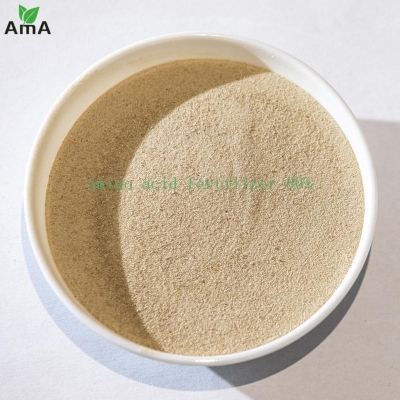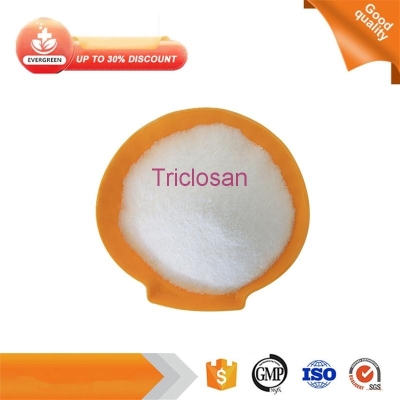-
Categories
-
Pharmaceutical Intermediates
-
Active Pharmaceutical Ingredients
-
Food Additives
- Industrial Coatings
- Agrochemicals
- Dyes and Pigments
- Surfactant
- Flavors and Fragrances
- Chemical Reagents
- Catalyst and Auxiliary
- Natural Products
- Inorganic Chemistry
-
Organic Chemistry
-
Biochemical Engineering
- Analytical Chemistry
- Cosmetic Ingredient
-
Pharmaceutical Intermediates
Promotion
ECHEMI Mall
Wholesale
Weekly Price
Exhibition
News
-
Trade Service
With the growing strength of China's local innovative drug development, the marriage of multinational pharmaceutical companies to domestic enterprises is becoming more frequent.
Following Lilly holding hands with Xinda Bio, Anjin hugging Baiji Shenzhou, AbbVie's fateful life, "Cosmic Big Pharma" Pfizer also seems to be waiting, in the atmosphere of the Mid-Autumn Festival holiday for the domestic star biopharmaceutical company Keystone Pharmaceuticals to send three "gifts": First, for $200 million to subscribe for a 9.9% stake in Keystone Pharmaceuticals; Second, to obtain the exclusive commercial operation rights of cornerstone pharmaceutical company anti-PD-L1 in Chinese mainland, and will pay up to $280 million in future Shugli single resistance milestone payments and additional royalties to cornerstone pharmaceutical industry;
Pfizer's "gift" could total up to $480 million.
China's innovative pharmaceutical companies have sprung up in recent years, including nearly 20 innovative pharmaceutical companies that have successfully IPOd under the new rules of the Hong Kong Stock Exchange, but there are still a few innovative pharmaceutical companies that can be endorsementd by multinational pharmaceutical companies with equity investments.
's the point of looking at this deal? The Rubik's Cube first interviewed Dr. Jiang Ningjun, Chairman and CEO of Keystone Pharmaceuticals, and Dr. Yuan Bin, Chief Strategy Officer.
to the Sugley mono-resistance industry pointed out that PD-1/PD-L1 drugs are the field of anti-tumor fist products, no visionary oncology drug company will voluntarily give up the track.
PD-1/PD-L1 drug market has been very bullish, with some predicting that PD-1/L1 will grow at a compound annual rate of 23.4%, as evidenced by the fact that global sales of PD-1 have passed the $10 billion mark in its fourth year of market.
, a total of 10 PD-1/PD-L1 oncology immunotherapy drugs have been marketed worldwide, including 4 domestic drugs and 6 products from multinational pharmaceutical companies.
of the eight PD-1/PD-L1 drugs approved for sale in China, 6 are PD-1 monoantibilies and 2 are PD-L1 monoantigens developed by multinational pharmaceutical companies.
Shugli monoanti (CS1001, PD-L1 antibody) developed by Keystone Pharmaceuticals is a full-length, all-human IgG4 anti-PD-L1 monoclonal antibody that is currently being developed in phases III and IV non-small cells Four Phase III registered clinical studies of lung, stomach and esophageal cancers, one phase II globally registered clinical study of NKT lymphoma, one multi-arm IB clinical study for multiple cancer species, and one U.S. Bridging Phase I study.
, Shugli monoantigen recently reached the end of a phase III clinical study for first-line treatment of stage IV squamous and non-squamous non-small cell lung cancer (NSCLC), and plans to submit a new drug application to the State Drug Administration of China in the second half of 2020.
Schugli monoantigen potential adaptations cover a number of high-risk cancer types in China, such as lung, stomach and esophageal cancers, and according to data recently disclosed by Keystone Pharmaceuticals at the CSCO and ESMO academic conferences, Shugli monotherapy and combination chemotherapy have shown good safety and tolerance.
is expected to be the best PD-L1 antibody of its kind, with a lower risk of immunogenicity and associated toxicity in patients than similar drugs.
From Pfizer's perspective, as a global pharmaceutical giant, the biopharmaceutical business is undoubtedly at the heart of future earnings growth, but in terms of revenue data for 2019, the 8% growth in Pfizer's biopharmaceutical business segment is mainly driven by the breast cancer drug Ibrox, the anticoagulant drug Eliquis, rheumatoid arthritis drug Xeljanz and other relatively mature small molecule products, the business contribution of large molecular biopharmaceuticals is weak.
Addition, Pfizer's previous joint development with Merck of the Avelumab (PD-L1 single-resistance) single-resistance is not listed in China, coupled with seeing similar products in the Chinese market potential unlimited, Pfizer is bound to seek new growth points in China.
this partnership with Keystone Pharmaceuticals will undoubtedly enrich Pfizer's product base in China and bring new growth drivers.
Is different from the previous product layout introduced by Cornerstone Pharmaceuticals from Blueprint, Agios Pharmaceuticals and other companies, this strategic partnership with Pfizer is the first attempt by Keystone Pharmaceuticals to license the commercialization rights of its self-developed products to multinational large pharmaceutical companies, which also shows that Pfizer is highly optimistic about the prospects for the commercialization of Shugli's mono-resistance.
the research and development capabilities of keystone pharmaceutical industry innovative drugs for up to a decade, and the development cost is extremely high.
previously held that the bottleneck of drug innovation in China lies in "clinical development", which directly determines the success or failure of innovative drugs.
Keystone Pharmaceuticals and Pfizer will jointly introduce tumor products in the Chinese mainland licensing phase(which have been proof of concept), with clinical development to be led by Keystone Pharmaceuticals,
Foundation Pharmaceuticals and Pfizer said in a future partnership framework.
In Dr. Yuan Bin's view, the above-mentioned cooperation by the keystone pharmaceutical industry-led clinical development part, fully demonstrated the strength of the research and development of cornerstone pharmaceutical industry has been recognized by the international first-line pharmaceutical companies, but also multinational pharmaceutical companies to the emerging Chinese biopharmaceutical enterprises innovative research and development capabilities of the affirmation and proof.
shows that Pfizer, in addition to its Shugli single-resistance commercialization potential in China, also values the research and development of keystone pharmaceutical industry, especially the strength of clinical development.
Public Information shows that in just four years since its establishment, Keystone Pharmaceuticals has completed nearly 40 IND declarations and promoted the progress of nearly 30 clinical trials, including 15 registered clinical trials and 11 joint therapy trials, to establish one of the largest anti-tumor drug research and development pipelines in China.
rapid and efficient advance of clinical trials, known in the industry as "the cornerstone speed."
the establishment of a super-strong research and development pipeline and three levels of innovation are inextricable: First, innovative clinical design, to promote clinical development of high-quality high-speed forward.
is able to design and execute an integrated clinical development plan for each product, and its key clinical trial scenarios are unique and difficult to replicate by strictly controlling each key node.
, these designs can significantly reduce the number of patients and the duration of clinical trials to be both high quality and high speed.
, innovative product pipeline, for China's high incidence of cancer and clinical treatment gaps.
present, cornerstone with tumor immunotherapy combination therapy as the core, to create a rich product pipeline of 15 tumor candidate drugs, for the cornerstone's unique clinical development ideas to provide possibilities.
Unlike some large multinational pharmaceutical companies, Keystone is committed to developing cancers that are currently high in China and have huge unseeded needs, such as lung, colorectal, stomach, liver and esophageal cancers.
at the same time, for rare, difficult to treat cancer clinical treatment gaps to fill.
company relies on a wealth of product lines, according to demand, can be synchronized to achieve single-drug or joint drug layout, and achieved good results.
third, innovative combination therapies that offer the possibility of better clinical treatment.
currently, Cornerstone is the only company in China with PD-L1, PD-1 and CTLA-4, which are the backbone of cancer immunotherapy at the clinical stage at the same time, to create synergies and lead differentiated combination therapy strategies.
Dr. Jiang Ningjun also revealed that, considering that Keystone Pharmaceuticals will also lead the clinical development of Pfizer pipeline products participating in this cooperation in Greater China, and may also lead the clinical development rights and interests of products imported from third parties, Keystone Pharmaceuticals will further optimize clinical design, adopt a more innovative clinical research and design model, and improve research and development efficiency through exploration and cooperation with top CRO, thereby enhancing the company's core competitiveness.
is bullish on the business synergies of the partnership The deal also has to be mentioned, with Pfizer offering a 43.8 per cent premium to buy a 9.9 per cent stake in Keystone Pharmaceuticals based on the closing price the day before the deal.
Generally speaking, the willingness of the acquiring company to pay a premium to the target company is primarily to take into account the target company's development prospects and the synergies that result from the merger or investment, and is willing to work with the target company in depth and in the long term.
Dr. Jiang Ningjun revealed in an interview that the commercialization of Shugli's single resistance in Greater China to Pfizer does not mean that it abandons the construction of a commercialization team, on the contrary, the cooperation will promote the cornerstone pharmaceutical industry to better build efficient commercialization capabilities, in the near future focused on the listing of three global breakthrough precision therapy drugs in Greater China.
the end of 2019, Keystone Pharmaceuticals announced the appointment of Ms. Zhao Ping, a senior professional manager in the pharmaceutical industry, as General Manager of Greater China and Head of Commercial Operations of the Company, who is fully responsible for the commercialization of the Company's products.
he expects keystone Pharmaceuticals to have a commercialization team of about 200 people by the end of the year, responsible for the commercialization of Keystone Pharmaceuticals' products in addition to Shugli's mono-resistance.
" is a mutually beneficial and win-win deal.
Pfizer's strength in commercialization is evident in the industry.
our partnership with Pfizer not only maximizes the market potential of Shugli's single resistance, but also draws on Pfizer's proven experience in commercial operations.
, given that the two teams have established a good trust relationship through early communication, these will lay a solid foundation for the long-term cooperation between the two sides.
Added, "Pfizer's stake in Keystone Pharmaceuticals also fully reflects Pfizer's confidence in keystone Pharmaceuticals' prospects for growth."
" In other words, Keystone Pharmaceuticals, as an innovative pharmaceutical company, also needs Pfizer.
On the one hand, this partnership will provide financial support for keystone pharmaceutical companies to further develop Shugli monomatics, and on the other hand, strong marketing capabilities and commercialization teams are important guarantees of product revenue, and this partnership will help Keystone Pharmaceuticals further transform it into an innovative pharmaceutical company with a full range of capabilities.
Conclusion This is a critical period for the development of China's innovative pharmaceutical companies, how to further integrate the resources of both sides through cooperation with mature large pharmaceutical companies, to explore the most suitable development model for the Chinese market, cornerstone pharmaceutical and Pfizer's strategic cooperation, may be one of the cases that can be used for reference.
.







